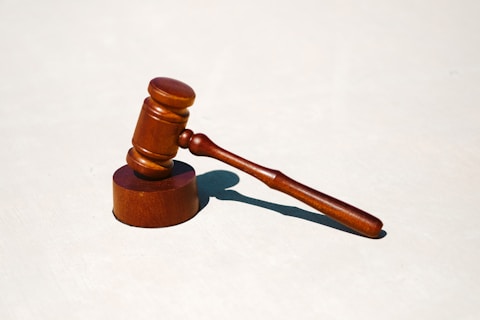Condom Use and the Law in Sex Work: What You Need to Know
Why It Matters
Using condoms during commercial sexual services isn't just best practice—in New Zealand, it's the law.
Under the Prostitution Reform Act 2003, Section 9, both sex workers and clients must take all reasonable steps to use protection.
That means using condoms or dental dams for any activity where there's a risk of sexually transmitted infections (STIs).
Failing to follow these laws can lead to serious consequences—not just for your health, but legally too.
Even if both parties say they're okay with not using a condom, the law still requires it.
There is no valid excuse to skip protection in a professional sex work setting.
Legal Responsibilities In New Zealand:
Both the sex worker and the client have a legal duty to prevent STI transmission.
Sex workers can refuse services if a client does not want to use protection—this is legally protected.
Clients who pressure or try to coerce workers into unsafe sex may be reported and face legal consequences.
Stealthing is Illegal
Removing a condom during sex without the other person's consent—known as stealthing—
can be a criminal offense in New Zealand.
Although current legislation defines rape narrowly (penetration of the vagina by a penis without consent), stealthing may still result in charges such as:
Sexual violation under the Crimes Act 1961, Section 128 view here,
Indecent assault, or
Fraudulent sexual connection.
Example:
In 2021, a man was convicted and sentenced to nearly four years in prison for stealthing a sex worker.
This case made clear that stealthing is taken seriously in New Zealand courts.
Consequences of Not Using Protection in NZ
Health risks:
Increased chance of contracting or spreading STIs or HIV.
Legal risks:
Breach of Prostitution Reform Act 2003, Section 9,
can result in fines and complaints made to the Prostitution Law Review Committee.
Sex workers or clients who fail to take reasonable steps to
prevent STI transmission may be liable under public health legislation or
criminal law depending on the situation.
Workplace risks:
Non-compliance could affect your ability to work in licensed premises,
be eligible for workplace protections, or access support services.
No Exceptions
Even if the client offers more money, even if you feel pressured,
or even if you're in a private arrangement—
the law and best practice still apply.
If you are providing commercial sexual services in New Zealand,
condoms must be used. Always.
It’s the Right Thing to Do
Beyond the legal side,
using condoms is about respect—
respecting yourself,
your clients, and the community.
It’s also one of the best tools you have to protect your health and your livelihood.
It can also help with messy/shitty situations.
Want to learn more about how to use condoms properly,
where to get them, and what to do if you don’t have one?
Click here for tips, links to free resources, and support services.
Immigration Status and Sex Work in New Zealand
In New Zealand,
only citizens,
permanent residents,
or those with a visa that explicitly allows sex work
are legally allowed to work in the sex industry.
According to the Prostitution Reform Act 2003 and immigration policies,
temporary visa holders (such as tourists, students, and working holidaymakers)
are not permitted to provide commercial sexual services.
If someone on a temporary visa engages in sex work, the consequences can be serious:
Deportation, even after one incident,
A re-entry ban, meaning you may not be allowed to return to New Zealand, and
Legal penalties for anyone who assists or employs a visa holder in breach of these rules.
🔗 Learn more here: www.immigration.govt.nz/sexwork
Legal Age and Youth Protection
The legal age to work in the sex industry is 18.
This aligns with the Prostitution Reform Act 2003,
which protects young people from
exploitation while respecting the autonomy of consenting adults.
It's not illegal for someone under 18 to identify as a sex worker—
but it is illegal to perform or be paid for
any commercial sexual service if you are under 18.
Clients who do so can face serious legal penalties, including criminal charges.
⚠️ If you're under 18 and thinking about sex work:
You're not in trouble for how you identify—but you cannot legally engage in sex work.
The law is here to protect you, not punish you.
The client is the one who will face legal consequences.
🧠 Empowerment through information:
For those aged 18 and over, knowing your rights helps you work safely and confidently. The law supports your decision and your safety.
If you are under 18 and involved in sex work, you're not alone.
There are youth-specific services to help you safely exit the industry and access
health, housing, and emotional support:
Youthline – Free, confidential support and counselling: www.youthline.co.nz
OutLine NZ – Support for LGBTQIA+ youth: www.outline.org.nz
Oranga Tamariki – Child protection services: www.orangatamariki.govt.nz
👮 You can also go to the Police:
If you are underage and feel unsafe or are being pressured into sex work,
the police are there to protect you—not arrest you.
You will not be charged or punished for seeking help.
You can ask to speak to a specially trained officer or have a support person with you.
Helping Underage Sex Workers
Supporting a person under 18 involved in sex work can be a legally complex situation.
While the intention to help is important, any form of facilitation—
including transportation, housing related to sex work, or accepting money—
can be considered aiding or abetting an illegal act.
Even supplying condoms, while well-meaning,
may be legally risky if interpreted as enabling the activity.
If you're concerned about someone underage,
the best and safest option is to refer them to a professional service such as Youthline or Oranga Tamariki.
These services are trained to handle these cases with care and legal clarity.



